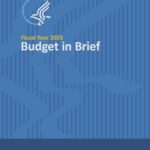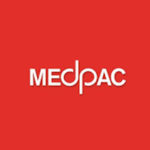The following is the latest health policy news from the federal government for March 8-14. Some of the language used below is taken directly from government documents.
 The White House
The White House
The Biden administration this week released its proposed FY 2025 federal budget. Health care highlights include:
- Making permanent the expanded health care premium tax credits introduced to make health insurance marketplace plans more affordable for middle-class Americans.
- Extension of coverage similar to Medicaid to residents of the 10 states that have not taken advantage of the Affordable Care Act opportunity to expand their Medicaid programs.
- Permission for states to extend the current 12-month continuous Medicaid and CHIP eligibility for children to 36 months and to provide continuous eligibility for children from birth until the age of six.
- Increased investment in Certified Community Behavioral Health Clinics and Community Mental Health Centers, expansion of the 988 Suicide and Crisis Lifeline, and expanded mental health care and support services in schools.
- Renewed funding for the administration’s “Cancer Moonshot” and increased funding for research on women’s health issues.
- Extension of Medicare policies limiting individuals’ out-of-pocket prescription drug costs and a ceiling of $35 a month for insulin products to those covered by commercial health insurance and co-pays of no more than $2 a month for “high-value” prescription drugs for Medicare beneficiaries.
- A ban on “unwarranted facility fees” for telehealth and “certain other outpatient services” covered by commercial health insurance.
- A significant increases in federal spending for community health centers.
Learn more about the administration’s FY 2025 budget proposal from the following resources:
- A White House fact sheet.
- HHS’s “budget in brief” document.
- The portion of the entire proposed budget devoted to HHS.
- HHS’s statement about the proposed budget.
- A statement from HHS’s Health Resources and Services administration about the aspects of the budget that address youth mental health services, maternity care, and access to primary care.
 Congress
Congress
- Congress has until March 22 to pass six spending bills – including the bill that funds the Department of Health and Human Services – to complete funding of the federal government through the end of the 2024 federal fiscal year. If lawmakers are unable to agree on all six bills Congress may choose to pass another continuing resolution for those that remain unsettled.
- Last week Congress passed six FY 2024 spending bills and included a handful of health care provisions, including an extended delay of Medicaid DSH cuts through December 31, 2024 and an increase of the conversion factor of the Medicare physician fee schedule from 1.25 percent to 2.93 percent.
The Cyberattack on Change Healthcare
- In response to the continued challenges posed by the cyberattack on Change Healthcare, CMS announced that it will make available Change Healthcare/Optum Payment Disruption accelerated payments to Part A providers and advance payments to Part B suppliers experiencing claims disruptions because of the cyberattack. These accelerated and advance payments may be granted in amounts of up to 30 days of claims payments to eligible providers and suppliers. Learn about the payments, eligibility requirements, and more from this CMS news release; this CMS fact sheet; and this CMS FAQ.
- Department of Health and Human Services Secretary Xavier Becerra and Julie Su, acting Secretary of the Department of Labor, issued a letter to “health care leaders” calling for United Healthcare (in its capacity as owner of Change Healthcare), other insurers, clearinghouses, and other health care entities to take additional actions to mitigate the harm this attack has inflicted on patients and providers, and especially on safety-net providers. The letter lists specific actions the federal government seeks from United Healthcare, insurers, and other payers. Find their letter here.
- HHS leaders and White House staff met with representatives of health care payer and provider organizations to discuss the challenges raised by the Change Healthcare cyberattack. Learn more about the purpose of the meeting and find a list of participants from this HHS summary. CMS issued a statement following this meeting; find that statement here.
- HHS’s Office of Civil Rights has launched an investigation of the Change Healthcare cyberattack. The investigation will focus on whether there has been a breach of protected health information and Change Healthcare’s and United Healthcare’s compliance with HIPAA rules. Learn more from this HHS news release and this message from HHS’s Office of Civil Rights.
 Centers for Medicare & Medicaid Services
Centers for Medicare & Medicaid Services
- CMS has re-released the ICD-10 Medicare Severity Diagnosis-Related Group (MS-DRG) definitions manual file and grouper software effective April 1, 2024. Go here for more information.
- CMS will introduce 41 new procedure codes into the International Classification of Diseases, Tenth Revision, Procedure Coding System (ICD-10-PCS) effective April 1, 2024. Find the new codes here.
- The Consolidated Appropriations Act of 2023 established a new Medicare benefit category for marriage and family therapists and mental health counselors. In a new FAQ, CMS addresses how it defines these professionals, what they need to do to enroll as Medicare providers, the parameters that define their use of telehealth, and more. Find that FAQ here. Payment for these services under Medicare Part B began on January 1, 2024.
- CMS has published a bulletin with a new list of CLIA-waived tests approved by the FDA. Find the bulletin here; it takes effect on April 1.
- CMS has updated its publication with information for rural health clinics. Find the updated booklet here.
- Three years ago CMS transitioned from its downloadable PC Pricer to the current web-based Web Pricer application and is now interested in learning more about the end-user experience so it is inviting users to take a brief survey about their experience. Take the survey here.
- CMS has published a brief document explained how Medicare pays for vaccines administered during a patient’s stay in a nursing home. Find it here.
Department of Health and Human Services
- HHS’s Office of Minority Health is soliciting applications for projects to demonstrate that community-level innovations that reduce barriers related to social determinants of health can increase use of preventive health services. Learn more from this grant opportunity announcement. Grants will range from $475,000 to $600,000 and proposals are due by May 15.
- The federal government made potential overpayments to some providers under the Phase 2 general distribution of the Provider Relief Fund Program, HHS’s Office of the Inspector General has concluded in a new audit report. Learn more from this overview of the audit, which includes links to a summary of the audit and the complete audit report.
HHS Newsletters
 Medicare Payment Advisory Commission (MedPAC)
Medicare Payment Advisory Commission (MedPAC)
MedPAC’s commissioners met publicly last week in Washington, D.C. Their agenda consisted of the following issues:
- Rural hospital and clinician payment policy: A workplan for 2024–2025
- Assessing data sources for measuring health care utilization by Medicare Advantage enrollees: Encounter data and other sources
- Preliminary analysis of Medicare Advantage quality
- Medicare’s Acute Hospital Care at Home program
- Update on trends and issues in Medicare inpatient psychiatric services
Go here for a brief overview of each agenda item and links to the staff presentations on those issues and go here for a transcript of the two-day meeting.
Medicaid and CHIP Payment and Access Commission (MACPAC)
MACPAC’s commissioners met publicly last week in Washington, D.C. Their agenda consisted of the following issues:
- Proposed Recommendations for Improving the Transparency of Medicaid Financing
- Medicaid Home- and Community-Based Services: Addressing Administrative Requirements
- Optimizing State Medicaid Agency Contracts: Policy Options
- Findings from Interviews About Medicaid Payment Policies to Support the Home- and Community-Based Services Workforce
- Themes From Expert Roundtable on Physician-Administered Drugs
- Transitions of Coverage and Care for Children and Youth With Special Health Care Needs
- Medicare Savings Program: Enrollment Trends
Go here for MACPAC’s summary of the meeting and links to the presentations for each of the agenda items.
 Stakeholder Events
Stakeholder Events
CMS – ICD-10 Coordination and Maintenance Committee Meeting – March 19-20
CMS’s ICD-10 Coordination and Maintenance Committee will meet virtually on Tuesday, March 19 and Wednesday, March 20 at 9:00 (eastern) on both days. Go here for information about the procedure and diagnostic codes to be addressed during the meeting and to register to participate.
CMS – Skilled Nursing Facility/Long-Term Care Open Door Forum – March 21
CMS will host a skilled nursing facility/long-term care open door forum on Thursday, March 21 at 2:00 (eastern). Go here to register to participate.
HHS – Office of Climate Change and Health Equity – Webinars on Taking Advantage of Provisions in the Inflation Reduction Act – March 21 (and April 4 and 18)
HHS’s Office of Climate Change and Health Equity is holding a series of webinars to help health care providers, and especially safety-net organization, take advantage of the tax credits, grants and other supports made available by the Inflation Reduction Act, which creates opportunities for health sector organizations to invest in clean energy, building efficiency, infrastructure resilience, and more. The next webinar will be held on Thursday, February 8, with additional events scheduled on February 22, March 7 and 21, and April 4 and 18. Separate break-out sessions will be held for essential hospitals, community health centers, and rural providers. Go here to learn more about the webinar series, future events, and the break-out sessions; go here for a recording of a November briefing on Inflation Reduction Act resources available to health care providers; and go here to register to participate.
CMS – Interoperability and Prior Authorization Final Rule Education Session – March 26
CMS’s Office of Burden Reduction & Health Informatics will host a virtual education session on Tuesday, March 26 at 1:00 (eastern) on the CMS Interoperability and Prior Authorization final rule. Questions can be submitted beforehand via the registration form. The webinar, according to CMS, will be appropriate for patients, providers, and administrative, health IT, and government affairs professionals. Go here to register to participate and to submit questions you would like addressed during the session.
CMS – Achieving Full Annual Skilled Nursing Facility Annual Update – March 26
CMS will hold a webinar to educate providers about current changes and to help providers learn how to again a full annual update under its Skilled Nursing Facility Quality Reporting Program. The webinar will be held on Tuesday, March 26 at 1:00 (eastern). Go here to learn more about the webinar and to register to participate.
MedPAC – Commissioners Meeting – April 11-12
MedPAC’s commissioners will hold their next public meeting on Thursday, April 11 and Friday, April 12. An agenda and directions on how to participate in the meeting are not yet available but when that information is announced it will be posted here.
MACPAC – Commissioners Meeting – April 11-12
MACPAC’s commissioners will hold their next public meeting on Thursday, April 11 and Friday, April 12. An agenda and directions on how to participate in the meeting are not yet available but when that information is announced it will be posted here.
CMS – Health Equity Conference – May 29-30
CMS will hold its second annual CMS Health Equity Conference on Wednesday, May 29 and Thursday, May 30. The free, hybrid conference will be held in person in Bethesda, Maryland and available online for virtual participation and involve health equity leaders from federal and local agencies, health provider organizations, academia, community-based organizations, and others. Conference participants will hear from CMS leadership on recent developments and updates to CMS programs; explore the latest health equity research; discuss promising practices and creative solutions; and collaborate on community engagement strategies. CMS is now accepting proposals for breakout session speakers and poster presenters. Learn more from the conference web page.

 Centers for Medicare & Medicaid Services
Centers for Medicare & Medicaid Services Stakeholder Events
Stakeholder Events